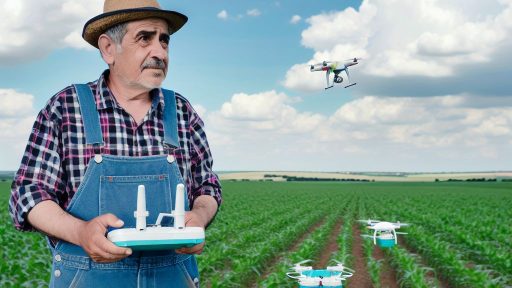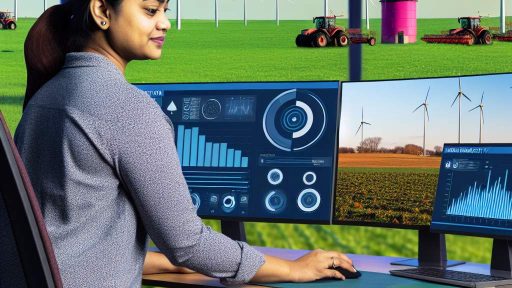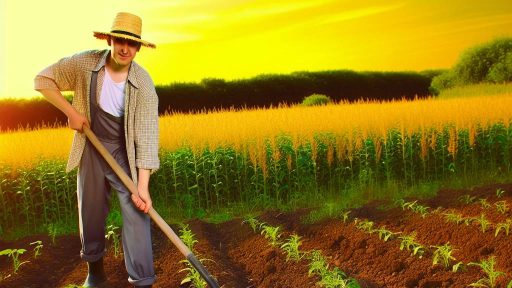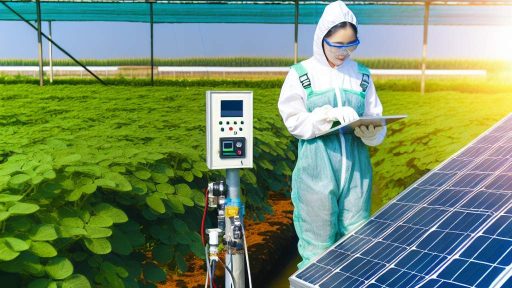Introduction to Precision Irrigation Systems
The Concept of Precision Irrigation
Precision irrigation systems represent a significant advancement in agricultural practices.
These systems enable farmers to optimize water usage efficiently.
They apply the right amount of water at the right time to the right place.
This technology significantly boosts crop yield while conserving resources.
Importance of Water Management in Agriculture
Water scarcity poses a major challenge to modern farming.
Farmers face increasing pressure to produce more with less water.
Effective water management ensures sustainable agricultural practices.
It minimizes wastage while maximizing crop productivity.
Role of Precision Irrigation Systems in Sustainable Farming
Precision irrigation systems help to reduce water consumption considerably.
Farmers benefit from efficient use of resources, leading to cost savings.
These systems contribute to soil health by preventing over-irrigation.
Moreover, they enhance crop resilience against drought conditions.
Technological Components of Precision Irrigation Systems
Modern precision irrigation relies on various technologies.
These include soil moisture sensors, weather forecasting tools, and automated systems.
Integration of these components improves irrigation scheduling effectively.
Transform Your Agribusiness
Unlock your farm's potential with expert advice tailored to your needs. Get actionable steps that drive real results.
Get StartedConsequently, farmers can monitor and control water usage daily.
Case Studies and Real-World Applications
Several farms have successfully implemented precision irrigation systems.
For example, Green Valley Farms reported a 30% reduction in water usage.
Similarly, Red River Orchards increased yield by 25% using this technology.
These outcomes demonstrate the potential of precision irrigation to transform agriculture.
Overview of Precision Irrigation Systems
Understanding Precision Irrigation
Precision irrigation enhances farming efficiency and sustainability.
It tailors water application to specific crop needs.
This method conserves water and improves yields.
Farmers utilize various systems for effective irrigation.
Types of Precision Irrigation Systems
Several types of precision irrigation systems exist.
Each system offers unique advantages and applications.
Drip Irrigation
Drip irrigation delivers water directly to the plant roots.
This system minimizes evaporation and runoff.
It involves a network of tubing and emitters.
Farmers can easily manage water application rates.
Drip irrigation is ideal for high-value crops.
Additionally, it reduces weed growth through targeted watering.
Sprinkler Irrigation
Sprinkler irrigation mimics natural rainfall.
This system uses pressurized pipes to distribute water.
It can cover large areas effectively.
Farmers can adjust spray patterns based on crop type.
Moreover, it allows for flexibility in irrigation scheduling.
Subsurface Irrigation
Subsurface irrigation places water below the soil surface.
This system prevents evaporation and surface runoff.
Showcase Your Farming Business
Publish your professional farming services profile on our blog for a one-time fee of $200 and reach a dedicated audience of farmers and agribusiness owners.
Publish Your ProfileIt delivers moisture directly to the root zone.
This technique is beneficial in arid regions.
Subsurface irrigation enhances soil moisture retention.
Benefits of Precision Irrigation Systems
Implementing precision irrigation brings numerous benefits.
Farmers can see significant water savings over time.
This approach also leads to higher crop yields.
Additionally, precision systems promote better soil health.
They help reduce the impact of irrigation on local ecosystems.
Benefits of Precision Irrigation for Water Conservation and Resource Management
Efficient Water Usage
Precision irrigation significantly improves water efficiency on farms.
This system delivers water directly to plant roots.
Consequently, less water evaporates or runs off.
Farmers can manage application rates based on crop needs.
As a result, they reduce overall water consumption.
Soil Health Improvement
Maintaining appropriate moisture levels enhances soil health.
Well-managed irrigation prevents soil erosion.
Additionally, it supports microbial activity in the soil.
Healthy soil promotes better crop yields over time.
Thus, farmers benefit from enhanced productivity and sustainability.
Cost Savings
Precision irrigation systems can lead to substantial cost savings.
By using less water, farmers lower their utility bills.
Moreover, improved crop output increases overall profitability.
This efficiency also reduces the need for fertilizers and pesticides.
Ultimately, these savings contribute to a more sustainable operation.
Environmental Benefits
Implementing precision irrigation contributes to environmental conservation.
Farmers help protect local water bodies by minimizing runoff.
This practice leads to improved water quality in canals and rivers.
Furthermore, it decreases the carbon footprint associated with agriculture.
Consequently, farmers support broader ecological efforts in their regions.
Technological Advancements
Modern precision irrigation utilizes cutting-edge technology.
Sensors and data analytics enable real-time monitoring.
Farmers can adjust irrigation schedules based on actual weather conditions.
This adaptability supports immediate responses to changing demands.
Thus, technological integration elevates the precision and effectiveness of irrigation practices.
Uncover the Details: Economic Advantages Of Growing Genetically Modified Crops
Enhancing Crop Yield and Quality
Overview of Precision Irrigation
Precision irrigation utilizes advanced technology to monitor soil moisture levels.
This technology enables farmers to apply water more effectively.
As a result, crops receive optimal irrigation tailored to their specific needs.
Improved Water Efficiency
Precision irrigation significantly reduces water waste.
Farmers can apply the exact amount of water required by crops.
Consequently, this method conserves precious water resources.
Showcase Your Farming Business
Publish your professional farming services profile on our blog for a one-time fee of $200 and reach a dedicated audience of farmers and agribusiness owners.
Publish Your ProfileMoreover, reduced water usage lowers utility costs for farmers.
Enhanced Crop Health
Precision irrigation supports healthier plants and improved growth rates.
Consistent moisture levels lead to stronger root systems.
This stability helps plants resist diseases and pests more effectively.
Consequently, farmers experience fewer crop losses and higher yields.
Increased Yield Quality
Crops irrigated with precision techniques typically show higher quality metrics.
Uniform watering promotes consistent growth and fruit size.
Farmers often report better taste and nutritional content in their produce.
This enhancement increases market value and customer satisfaction.
Integration with Smart Farming Technologies
Precision irrigation systems can integrate with other smart farming technologies.
For example, farmers can combine it with weather forecasting tools.
This integration further optimizes irrigation schedules and practices.
Additionally, data analytics provide insights for continuous improvement.
Sustainable Farming Practices
Adopting precision irrigation promotes sustainable farming methods.
Farmers who practice this method contribute to environmental conservation.
This approach helps maintain the health of aquifers and watershed areas.
As a result, it aligns agricultural practices with sustainability goals.
Find Out More: The Role Of Biotechnology In Pest Management
Integration of Technology in Precision Irrigation
Utilizing Sensors for Accurate Monitoring
Sensors play a crucial role in precision irrigation systems.
They provide real-time data about soil moisture levels.
Additionally, sensors monitor environmental conditions like temperature.
This information allows farmers to make informed irrigation decisions.
Consequently, this leads to optimized water usage across crops.
The Role of Automation in Irrigation
Automation simplifies the management of irrigation systems.
Farmers can schedule irrigation based on weather forecasts.
Moreover, automated systems reduce labor costs and save time.
They also minimize water waste through precise control.
For instance, advanced systems can adjust water delivery on demand.
Data Analytics for Efficient Resource Management
Data analytics enhances decision-making in irrigation practices.
Farmers can analyze historical data to identify trends.
This analysis supports predictive irrigation management strategies.
Analytical tools can suggest optimal watering times and amounts.
As a result, farmers increase crop yields while conserving resources.
The Importance of Integration
Integrating these technologies empowers precision agriculture.
It allows for a holistic approach to managing water resources.
Farmers can track performance and adjust practices as needed.
Consequently, this integration fosters sustainable farming practices.
Ultimately, it contributes to food security and environmental conservation.
Delve into the Subject: Sustainable Crop Rotation Methods Enhanced by Technological Advances
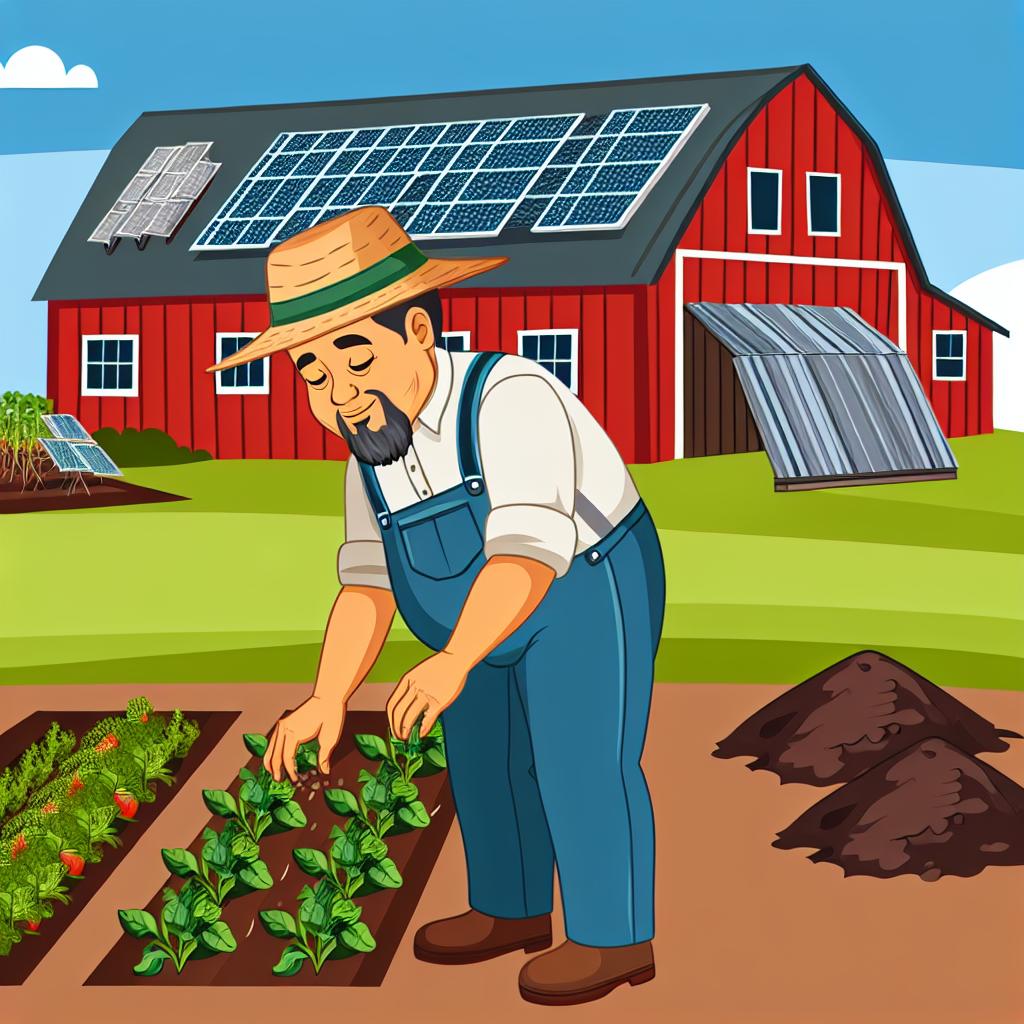
Case Studies of Successful Precision Irrigation Implementations
Cereal Crops in Brazil
In Brazil, farmers implemented precision irrigation for corn and soybeans.
Showcase Your Farming Business
Publish your professional farming services profile on our blog for a one-time fee of $200 and reach a dedicated audience of farmers and agribusiness owners.
Publish Your ProfileThis system utilized soil moisture sensors to monitor water levels.
As a result, water waste decreased by 30% on average.
Farmers reported increased yields due to optimal irrigation scheduling.
Additionally, this approach reduced energy costs associated with water pumping.
Vegetable Farming in California
California vegetable growers adopted drip irrigation techniques.
This technology directs water precisely to plant roots.
Consequently, it minimizes evaporation and runoff significantly.
Farmers noted improved crop quality and reduced labor demands.
Such methods have become a model for sustainable vegetable production.
Fruit Orchards in Australia
In Australia, fruit orchards implemented advanced precision irrigation systems.
Using remote sensing technology, these systems assess tree water needs.
This strategy increased water efficiency by over 25%.
Moreover, fruit quality improved, enhancing market value.
Growers embraced this innovation for its economic benefits.
Rice Cultivation in China
Chinese rice farmers integrated precision irrigation into their practices.
They utilized satellite imagery to monitor field moisture levels.
This technology allowed for timely and accurate irrigation applications.
As a result, rice yields increased while water usage decreased.
This approach contributed to enhanced food security in the region.
Legacy of Precision Irrigation Systems
Overall, these case studies highlight the advantages of precision irrigation.
Farmers across different regions have successfully adopted innovative technologies.
This trend promotes more sustainable farming practices.
Ultimately, precision irrigation systems enhance productivity and resource conservation.
Explore Further: Controlled Environment Agriculture Systems for Efficient Farming
Challenges and Considerations in Adopting Precision Irrigation Technologies
Initial Investment and Financial Implications
Implementing precision irrigation systems requires significant upfront investment.
Farmers may face difficulty justifying the initial costs.
Despite long-term savings, the short-term financial burden can be intimidating.
Additionally, ongoing maintenance and operational costs must also be considered.
Technological Familiarity and Training
Adopting new technology necessitates adequate training for farm personnel.
Farmers may feel overwhelmed by the complexities of advanced systems.
Training programs can require time and resources that farmers may lack.
Moreover, continuous technological advancements demand ongoing education.
Effectiveness in Varied Agricultural Conditions
The effectiveness of precision irrigation can vary by region and crop type.
Different soils and climates impact the performance of these technologies.
Farmers must assess whether the technology suits their specific conditions.
Local environmental factors can significantly influence irrigation needs.
Integration with Existing Systems
Integrating precision irrigation systems with traditional methods can be challenging.
Farmers often struggle to balance new technology with existing practices.
Compatibility issues may arise with older equipment and irrigation strategies.
Therefore, careful planning is essential for successful integration.
Showcase Your Farming Business
Publish your professional farming services profile on our blog for a one-time fee of $200 and reach a dedicated audience of farmers and agribusiness owners.
Publish Your ProfileRegulating Water Usage and Compliance
Governments often regulate water usage, impacting precision irrigation implementation.
Farmers must navigate complex water rights and usage laws.
Compliance can be time-consuming and may require additional resources.
Understanding these regulations is vital for sustainable operation.
Future Trends in Precision Irrigation
Technological Advancements
Technological improvements drive the future of precision irrigation systems.
Innovations in sensor technology enhance soil moisture tracking.
This allows farmers to apply water more efficiently.
Moreover, remote sensing offers insights into crop health.
These technologies lead to more strategic water resource allocation.
Data-Driven Decision Making
The use of data analytics will become essential in agriculture.
Farmers can analyze past data to optimize future irrigation schedules.
Real-time data collection further improves irrigation accuracy.
Consequently, farmers can reduce water usage dramatically.
Improved decision-making ultimately enhances crop yields.
Environmental Impacts
Precision irrigation systems positively affect the environment.
They contribute to water conservation efforts significantly.
By reducing runoff, these systems protect nearby ecosystems.
Additionally, lower water usage reduces energy costs for farmers.
This leads to a smaller carbon footprint for agricultural operations.
Regulatory and Market Influences
Government regulations may promote precision irrigation practices.
Subsidies for adopting technology can incentivize farmers.
Market demand for sustainably produced food drives these changes.
Consumers increasingly seek eco-friendly farming methods.
As a result, precision irrigation aligns with consumer preferences.
Future Research Directions
Ongoing research will focus on enhancing system efficiency.
Collaborations between universities and industry can yield significant advances.
Investments in innovative irrigation technologies are necessary.
Furthermore, studies on long-term sustainability will guide farmers.
Ultimately, research will play a crucial role in shaping methods.
Additional Resources
Precision Agriculture: Benefits and Challenges for Technology …
Revolutionizing American Agriculture: How Farmonaut’s Precision …

